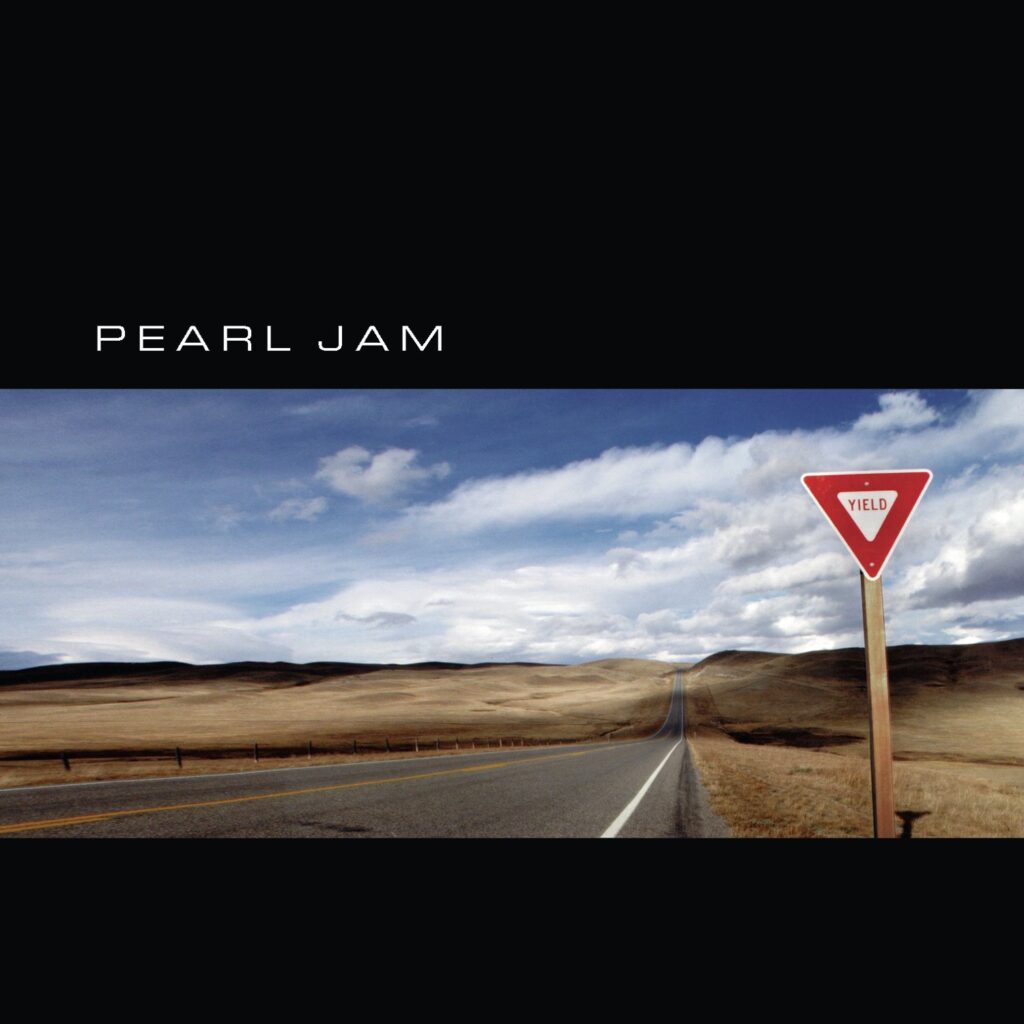
Pearl Jam released their fifth album Yield on February 3rd, 1998. Yield debuted at number two on the Billboard 200 and eventually out sold its predecessor No Code. Most lightly due to the band doing more promotion for the album including a return to full-scale touring and the release of a music video for the song “Do the Evolution”.
The record has been certified platinum by the RIAA in the United States. It was Pearl Jam’s last release with drummer Jack Irons, who left the band during it’s promotional tour. He was replaced by Soundgarden drummer Matt Cameron.
It’s hard to tell if Pearl Jam were swayed by the frosty reception to the more adventurous and experimental No Code. But the decision to return to a more straight ahead rock sound didn’t necessarily feel like a step back. The reason why..? Pearl Jam have always sounded their most sure footed when they’re being a straight ahead Rock N Roll band.
While that may have been a tough pill to swallow for certain members of the band, who may have had loftier notions of where the music should go. The truth has always been. Pearl Jam are a truly great rock band, with very few matching them for pure rock energy and intensity. But by 1998 they were left in the dust in the experimental stakes by bands like Radiohead who had released Ok Computer in 1997, just ten months before Yield. Maybe it was time to play to their strengths.
Having said that, the album does have a few weird flourishes scattered throughout, from the spoken word “Push Me, Pull Me” to the untitled Eastern instrumental bonus track, but overall, Yield is the most direct record the group had made since Ten.
Pearl Jam again worked with producer Brendan O’Brien, who worked on their previous three records. Yield was recorded throughout 1997 in Seattle, Washington at Studio X and Studio Litho, the latter of which is owned by guitarist Stone Gossard. The album was then mixed by O’Brien at his mixing facility Southern Tracks in Atlanta, Georgia. Yield would be the last collaboration with O’Brien for several years, until he was brought on board in 2008 to remix the band’s debut album Ten and produce 2009’s Backspacer.
Compared to Vitalogy and No Code, Yield represented more of a team effort among all members of the group. Eddie Vedder had made the final decisions for Vitalogy and No Code; however, at the end of the No Code recording sessions, Vedder suggested to Jeff Ament that it might be better for the other members to write and bring in more complete songs so Vedder would be under less pressure to write an entire albums worth of material.
Ament said that “everybody took that to heart,” and O’Brien added that most of the songs came to the studio finished. Ament also said that Vedder’s reaction to the rest of the band’s new material kept “everybody energized about their place in the band.” Vedder worked with the other band members on their own material before work was started on his.
Guitarist Mike McCready noticed a change in Vedder’s attitude during the recording of Yield, stating, “I used to be afraid of him and not want to confront him on things. We talk more now, and hang out. He seems very, very centered now.”
Vedder said that the band was able to “team up” and have a “partnership” while the album was being recorded. The band spent large amounts of time rehearsing the songs in order to get the best takes possible. Gossard commented that there was more “contouring” and “honing” of the demo material than on previous records.
Regarding the recording sessions, Jeff Ament stated that “Yield was a superfun record to make. And so much of it was Ed kind of sitting back.” He added that “everybody really got a little bit of their say on the record…because of that, everybody feels like they’re an integral part of the band.”
Assessing the state of “grunge” in 1998 could quickly turn into a post-mortem of sorts. Nirvana were a distant speck in Dave Grohl’s rear-view as he pushed forward with Foo Fighters.
Jerry Cantrell was about to release his 1998 solo album Boggy Depot. as he too tried to move on from the stagnating Alice In Chains situation.
Soundgarden had disbanded in 1997 with Chris Cornell preparing the release of his first solo effort in 1999.
The grunge-adjacent Smashing Pumpkins’ highly anticipated Adore, which was recorded using a drum machine following the firing of Jimmy Chamberlin, came out in June 1998, but was ultimately polarizing.
And then there was Pearl Jam with Yield. The band emerging from a run of albums that had become progressively more experimental and less straightforward after the astronomical success of their debut, 1991’s Ten.
With Yield, it felt as though the band were older, wiser, and beginning to put into place the building blocks that would help keep them in the game for the long haul.
Pearl Jam’s post grunge success started here. Yield was the catalyst for their longevity. It was a steadying of the ship, albeit one that rocked like a muthafu*ker. A road map forward as the band found themselves one of the very few left standing after the hay day of “Grunge” had passed.